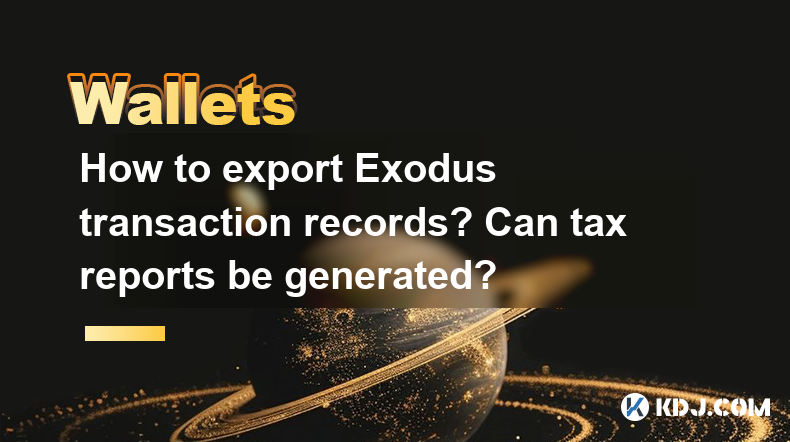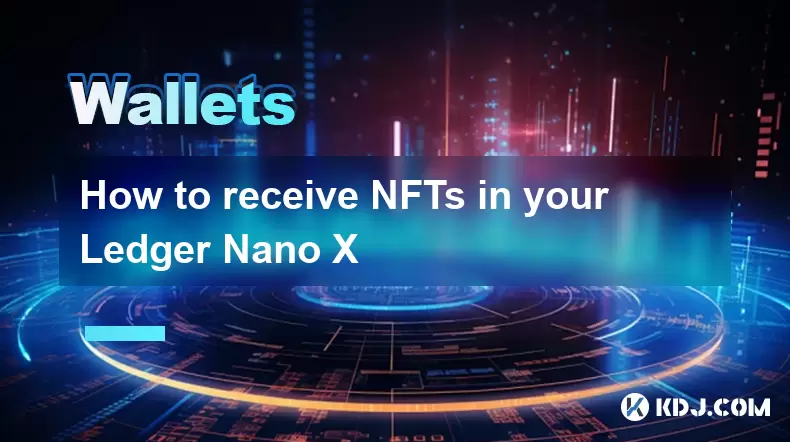-
 Bitcoin
Bitcoin $115100
1.27% -
 Ethereum
Ethereum $3675
2.71% -
 XRP
XRP $2.995
1.45% -
 Tether USDt
Tether USDt $1.000
0.02% -
 BNB
BNB $769.8
2.64% -
 Solana
Solana $168.0
3.25% -
 USDC
USDC $0.9999
-0.01% -
 TRON
TRON $0.3371
1.48% -
 Dogecoin
Dogecoin $0.2051
3.36% -
 Cardano
Cardano $0.7394
2.30% -
 Hyperliquid
Hyperliquid $38.15
0.42% -
 Stellar
Stellar $0.3966
-0.36% -
 Sui
Sui $3.486
2.93% -
 Chainlink
Chainlink $16.72
2.52% -
 Bitcoin Cash
Bitcoin Cash $568.0
4.36% -
 Hedera
Hedera $0.2440
2.59% -
 Ethena USDe
Ethena USDe $1.001
0.04% -
 Avalanche
Avalanche $22.16
2.06% -
 Litecoin
Litecoin $119.1
-0.73% -
 UNUS SED LEO
UNUS SED LEO $8.991
0.04% -
 Toncoin
Toncoin $3.232
-0.39% -
 Shiba Inu
Shiba Inu $0.00001233
2.82% -
 Uniswap
Uniswap $9.717
2.53% -
 Polkadot
Polkadot $3.664
1.85% -
 Dai
Dai $1.000
0.01% -
 Monero
Monero $281.2
-3.89% -
 Bitget Token
Bitget Token $4.350
1.55% -
 Cronos
Cronos $0.1428
5.07% -
 Pepe
Pepe $0.00001050
3.68% -
 Aave
Aave $262.3
3.54%
How to export Exodus transaction records? Can tax reports be generated?
Exodus allows users to export transaction records in CSV format for tax purposes, but does not offer built-in tax report generation.
May 02, 2025 at 02:21 am

Introduction to Exodus and Transaction Records
Exodus is a popular multi-currency wallet that allows users to store, manage, and exchange various cryptocurrencies. One of the essential features for users is the ability to track and export transaction records. This is crucial for maintaining accurate financial records and for tax purposes. In this article, we will explore how to export transaction records from Exodus and whether it is possible to generate tax reports directly from the platform.
Accessing the Transaction History in Exodus
To begin the process of exporting transaction records, you first need to access your transaction history within the Exodus wallet. Here's how you can do it:
- Open the Exodus wallet on your desktop or mobile device.
- Navigate to the portfolio section, where you can see all your assets.
- Select the specific cryptocurrency for which you want to view the transaction history.
- Click on the "Transactions" tab to see a list of all transactions related to that cryptocurrency.
This will give you a comprehensive view of all your transactions, including the date, amount, and type of transaction (e.g., send, receive, exchange).
Exporting Transaction Records from Exodus
Once you have accessed your transaction history, you can proceed to export these records. Exodus allows you to export your transaction history in a CSV (Comma-Separated Values) format, which can be easily imported into spreadsheet software like Microsoft Excel or Google Sheets for further analysis. Here are the steps to export your transaction records:
- Go to the "Transactions" tab for the specific cryptocurrency as mentioned earlier.
- Look for the "Export" button or option, usually located at the top right corner of the transaction list.
- Click on "Export", and a dialog box will appear asking you to confirm the export.
- Choose the location on your computer where you want to save the CSV file and click "Save".
The exported CSV file will contain detailed information about each transaction, such as the date, transaction ID, amount, and type of transaction. This file can be used for personal record-keeping or for tax purposes.
Can Tax Reports be Generated Directly from Exodus?
While Exodus provides a straightforward way to export transaction records, it does not currently offer a built-in feature to generate tax reports directly from the platform. However, the exported CSV files can be used with third-party tax software that supports cryptocurrency transactions. These tools can help you calculate your tax liabilities based on your transaction history.
Some popular third-party tax software options that support cryptocurrency transactions include:
- CryptoTrader.Tax: This platform allows you to import your Exodus CSV file and generate a comprehensive tax report.
- CoinLedger: Similar to CryptoTrader.Tax, CoinLedger supports the import of CSV files from Exodus and can help you with tax calculations.
- Koinly: Koinly also accepts CSV files from Exodus and provides detailed tax reports for various jurisdictions.
To use these tools, you will need to:
- Download the CSV file from Exodus as described earlier.
- Visit the website of the chosen tax software and create an account if necessary.
- Upload the CSV file to the platform, following the specific instructions provided by the software.
- Review and finalize your tax report within the third-party software.
Ensuring Accuracy of Exported Data
When exporting transaction records from Exodus, it's essential to ensure that the data is accurate and complete. Here are some tips to help you verify the accuracy of your exported data:
- Cross-check the total number of transactions in the CSV file with the transaction history in Exodus to ensure no transactions are missing.
- Verify the amounts and dates of a few random transactions to confirm that they match the records in Exodus.
- Check for any duplicate transactions in the CSV file, as this can affect the accuracy of your tax calculations.
If you notice any discrepancies, you may need to contact Exodus support for assistance or manually correct the CSV file before using it for tax purposes.
Using Exported Data for Tax Purposes
Once you have verified the accuracy of your exported transaction records, you can use them to prepare your tax returns. Here's how you can use the exported data for tax purposes:
- Import the CSV file into a spreadsheet program like Excel or Google Sheets.
- Organize the data by sorting it by date and transaction type to get a clear view of your financial activities.
- Identify taxable events, such as selling or exchanging cryptocurrencies, which may be subject to capital gains tax.
- Calculate your gains or losses for each taxable event using the cost basis and the sale or exchange price.
- Use third-party tax software as mentioned earlier to generate a detailed tax report based on your transaction history.
By following these steps, you can ensure that your tax calculations are accurate and compliant with the tax laws in your jurisdiction.
Frequently Asked Questions
Q: Can I export transaction records from the mobile version of Exodus?
A: Yes, you can export transaction records from the mobile version of Exodus. The process is similar to the desktop version: navigate to the transactions tab for the specific cryptocurrency, and look for the export option to download the CSV file.
Q: How often should I export my transaction records from Exodus?
A: It's a good practice to export your transaction records from Exodus at least once a year, especially before tax season. However, if you engage in frequent trading or have multiple taxable events, you may want to export your records more frequently to keep your financial records up to date.
Q: Can I import the exported CSV file from Exodus into other cryptocurrency wallets?
A: Generally, the CSV file exported from Exodus is specific to its format and may not be directly importable into other cryptocurrency wallets. However, you can use the data in the CSV file to manually enter transactions into other wallets or use third-party tools that support data conversion.
Q: What should I do if I encounter errors when importing the CSV file into tax software?
A: If you encounter errors when importing the CSV file into tax software, first ensure that the file is not corrupted and that all transactions are accurately recorded. If the issue persists, you may need to manually correct the CSV file or contact the support team of the tax software for assistance.
Disclaimer:info@kdj.com
The information provided is not trading advice. kdj.com does not assume any responsibility for any investments made based on the information provided in this article. Cryptocurrencies are highly volatile and it is highly recommended that you invest with caution after thorough research!
If you believe that the content used on this website infringes your copyright, please contact us immediately (info@kdj.com) and we will delete it promptly.
- BlockDAG, Litecoin, and Cardano: Charting the Course in Crypto's Dynamic Waters
- 2025-08-07 09:09:06
- Fireverse Token: Igniting a Musical Revolution in Web3
- 2025-08-07 08:27:45
- Ethereum, L2 Withdrawals, and Decentralization: A New Yorker's Take
- 2025-08-07 08:32:33
- Avalanche vs. Ruvi AI: Daily Sales Tell a Story of Crypto Disruption
- 2025-08-07 06:29:35
- DeSoc: The Crypto to Buy Now for a Decentralized Future (and Maybe 43x Gains!)
- 2025-08-07 06:50:16
- Arctic Pablo Coin: Riding the Meme Coin Wave with a Deflationary Twist
- 2025-08-07 07:18:13
Related knowledge

How to add Fantom network to MetaMask
Aug 07,2025 at 08:21am
Understanding the Fantom Network and MetaMask IntegrationThe Fantom network is a high-performance, scalable, and secure blockchain platform designed f...

How to export your transaction history from Coinbase Wallet
Aug 07,2025 at 06:50am
Understanding Coinbase Wallet and Transaction HistoryCoinbase Wallet is a self-custodial cryptocurrency wallet that allows users to store, manage, and...

How to export your transaction history from Coinbase Wallet
Aug 07,2025 at 08:49am
Understanding Coinbase Wallet and Transaction HistoryCoinbase Wallet is a self-custodial cryptocurrency wallet that allows users to store, manage, and...

How to set up a new Ledger Nano S Plus
Aug 07,2025 at 06:01am
Unboxing and Initial InspectionWhen you receive your Ledger Nano S Plus, begin by carefully unboxing the package. Inside, you should find the Ledger N...

How to receive Polkadot (DOT) in your hardware wallet
Aug 07,2025 at 07:03am
Understanding Polkadot (DOT) and Hardware Wallet CompatibilityReceiving Polkadot (DOT) into a hardware wallet begins with understanding the ecosystem ...

How to receive NFTs in your Ledger Nano X
Aug 07,2025 at 02:45am
Understanding NFTs and Ledger Nano X CompatibilityNFTs (Non-Fungible Tokens) are unique digital assets stored on a blockchain, typically on networks l...

How to add Fantom network to MetaMask
Aug 07,2025 at 08:21am
Understanding the Fantom Network and MetaMask IntegrationThe Fantom network is a high-performance, scalable, and secure blockchain platform designed f...

How to export your transaction history from Coinbase Wallet
Aug 07,2025 at 06:50am
Understanding Coinbase Wallet and Transaction HistoryCoinbase Wallet is a self-custodial cryptocurrency wallet that allows users to store, manage, and...

How to export your transaction history from Coinbase Wallet
Aug 07,2025 at 08:49am
Understanding Coinbase Wallet and Transaction HistoryCoinbase Wallet is a self-custodial cryptocurrency wallet that allows users to store, manage, and...

How to set up a new Ledger Nano S Plus
Aug 07,2025 at 06:01am
Unboxing and Initial InspectionWhen you receive your Ledger Nano S Plus, begin by carefully unboxing the package. Inside, you should find the Ledger N...

How to receive Polkadot (DOT) in your hardware wallet
Aug 07,2025 at 07:03am
Understanding Polkadot (DOT) and Hardware Wallet CompatibilityReceiving Polkadot (DOT) into a hardware wallet begins with understanding the ecosystem ...

How to receive NFTs in your Ledger Nano X
Aug 07,2025 at 02:45am
Understanding NFTs and Ledger Nano X CompatibilityNFTs (Non-Fungible Tokens) are unique digital assets stored on a blockchain, typically on networks l...
See all articles

























































































